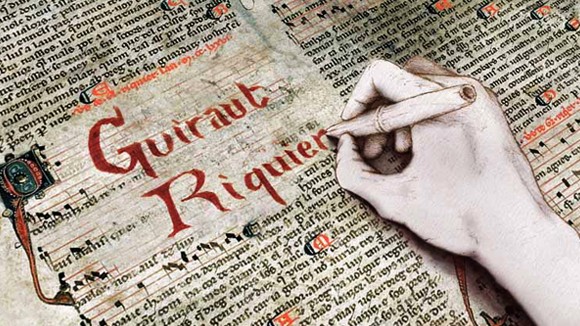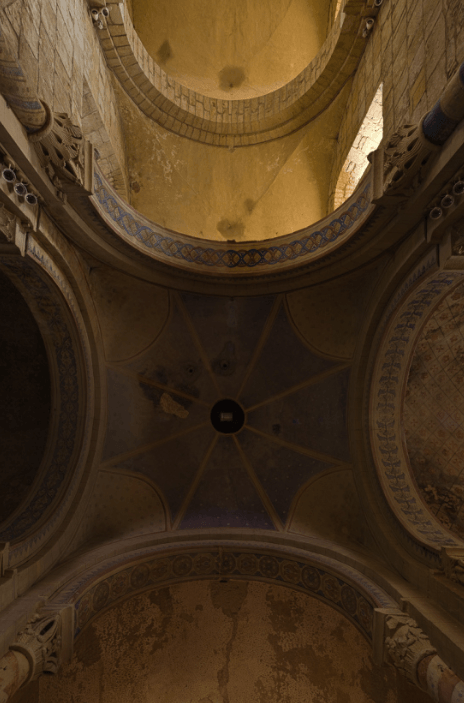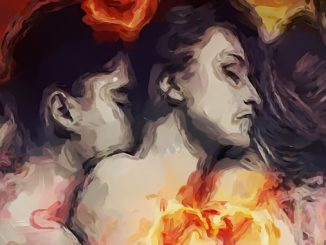

Guiraut Riquier: The Last Troubadour
How bleak it must have been
the long dangerous journeys
between towns and courts
which gradually lost interest
in your elegant old-fashioned art.
Influenced from the east
but transformed by the medieval western
obsession of individual experience.
For us now, your world is utterly gone,
disappeared with the figures and colours
in the illuminations of your time.
Your mastery was widely imitated
before it slowly went unnoticed
in your lifetime. Your main audience
should have been the Gnostic Cathars
and Albigansians that stretched
across Occitania, (which became southern France),
into Spain, through northern Italy
into Bosnia and the Balkans.
They supported the early troubadours
and shared some of their values.
You were fourteen when their great
stronghold of Montsegur fell
in the final brutal crusade against them.
You would have heard living accounts
of how over two hundred Cathar Perfects
were burnt alive in an enormous fire
near the prat des cramats at the foot of the castle.
Of that time, Arnaud, the Cistercian abbot who was
a commander in the crusade , wrote to Pope Innocent the third.
“Today your Holiness, twenty thousand heretics
were put to the sword, regardless of age, rank, or sex.”
The older surviving Cathar sympathizers
were a large part of your audience.
They still admired the troubadours, but they
slowly died off and you lost your patrons
For a while you worked as a poet
for Almarich the fourth, Viscount of Narbonne
but you were not fully recognized.
At forty you crossed the Pyrenees
and worked as a poet for Alfonso the tenth
for ten years. Later you crossed back
over the Pyrenees and wrote for Henry the second
Count of Rodez, who gave troubadours protection.
but times had changed, court entertainers
could sing the poems and songs
of the troubadours and do juggling tricks as well.
Creation of original troubadour poems
became superfluous and you found no new patrons.
In the regional economic decline you moved back
to the town of your birth and found
employment writing religious poetry.
No longer could you write of latent mysticism
in the Gnostic language of god as all forms of love.
The world had changed. The Catholic Church
had won and dissent was no longer an option.
Jongleurs and minstrels called themselves
troubadours. And the troubadours were no more.
In your last known poem you wrote:
“I remember my difficult past, I look at the merciless present,
and when I think of the future, I have true reason to weep.
I will have to stop singing… for truly I came too late.”
On Trying to Sit Alone on a Bus
or the Medusa of Caravaggio
-for Hisako
Passengers enter the bus and slowly sidle down the aisle.
Rather than share my seat on this intercity bus,’
I try to look crazed so I can sit alone.
The beautiful women as usual pass and sit with others.
Staring at the distance bug-eyed,
I try to match the painted expression
of Gericault’s madman from an asylum.
A blank astronomer’s stare pining into imagined emptiness.
I slip into thinking of the central condemned face
of Goya’s “Execution on Principe Hill”-
a self-possessed gaze into a firing squad
will get me some solitude.
I notice on the edge of my blurred stare,
the last hideous passenger hovering between
the few remaining seats;
I wish I could instantly drool to affirm my solitude.
After a few minutes indecision he sits beside me;
I can smell alcohol through the stench of his body odour.
He is a transgendered Medusa of Caravaggio.
His matted dreadlocks snaking around his shoulders,
his pallid expression of existential decapitation
a substance-inspired disembodied state.
He jerks his chest in a pre-vomit convulsion
with instant swallowing-
in five minutes, he is in an open mouthed snore.
The almost flapper-dressed woman sitting
in front us, turns back and laughs.
In dread I remember the Canadian
Greyhound bus passenger who sat down beside
an unknown rider before cutting off his head
with a large knife on a long stretch of country highway.
Still Medusa is there all through the night.
His reflected head in the window glass
is carried across harvested fields,
through scatterings of houses,
across forests, up hills into the grey sky.
*********************************************
(A note about St. Francis who, as the story goes, was a rich dandy who partied it up in his youth. He was later very friendly to the poor and gave away his possessions so liberally his father disinherited him in the public square. There he took off all his clothes so he would posses absolutely nothing, was given a burlap bag to cover himself by a member of the clergy and walked barefooted out of the town singing a French song).
Fioretti (of St. Francis)
Returning home
after an extravagant party
stopping for shelter
in a half fallen country chapel
looking out over the fields
through the holes in the walls
he took off his rich clothes.
For a week he spoke with sister moon
and brother sun,
hearing their songs in inflected light.
After the last night,
at the first moments of dawn,
when the sun sends sheets of fire
over the living surface of the earth
he woke with joy and shuddered
to the opening of fields of flowers.
.
Ewan Whyte
..
Bio – Ewan Whyte is a writer and translator. He has written for the Globe & Mail and The Literary Review of Canada. His essays, art criticism, poetry, and translations have been widely published in journals and magazines. He has read his translations of the ancient Roman poet Catullus on public radio in the U.S. He has recently completed two books. He lives in Toronto.


